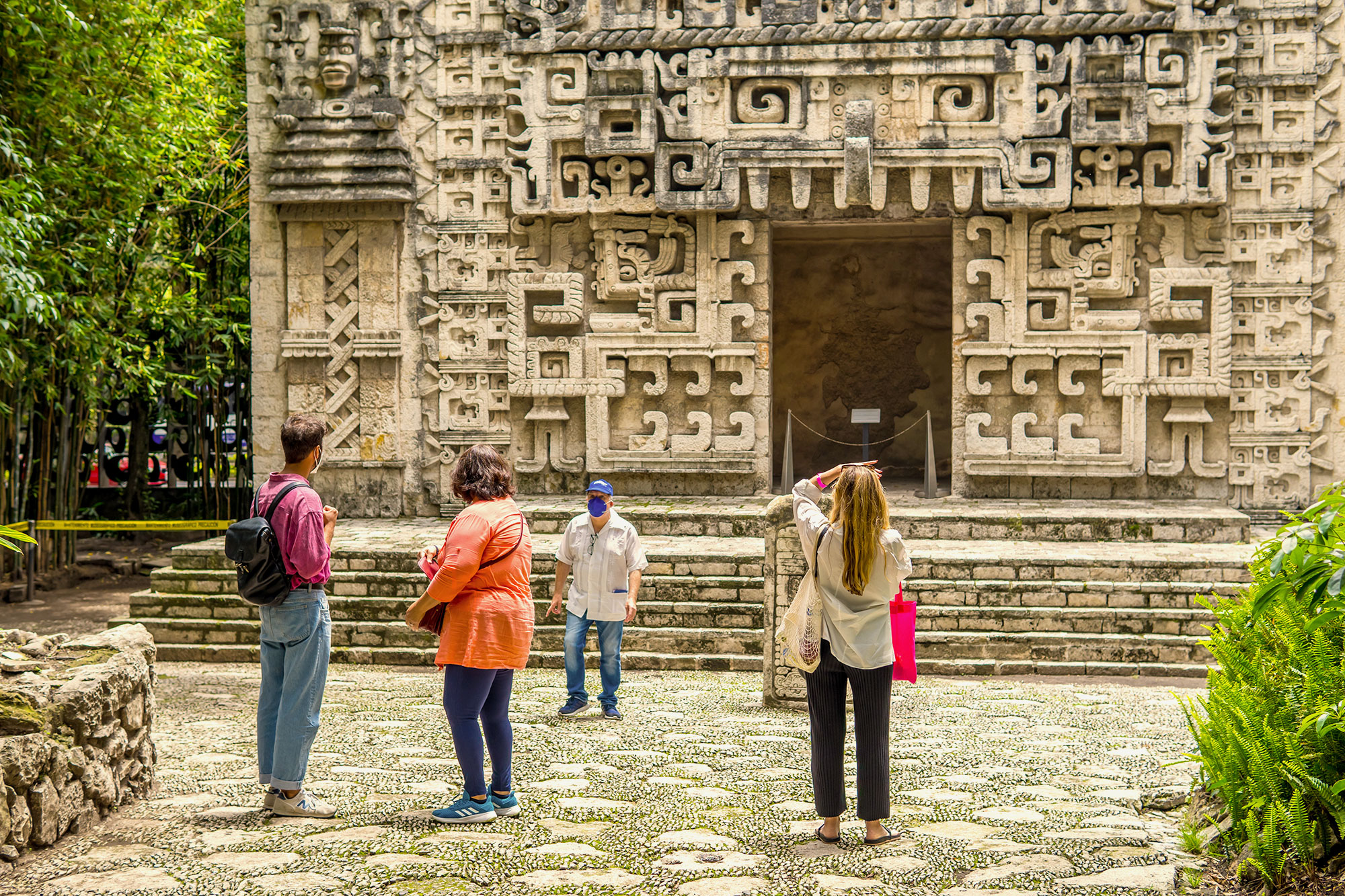To become an anthropologist, complete a bachelor’s degree in anthropology or a related field, followed by a master’s or doctoral degree for advanced research or teaching positions. Anthropology, a broad and fascinating field, offers a unique perspective into the study of human societies and cultures.
If you have an inquisitive mind and a passion for understanding diverse cultural practices, becoming an anthropologist might be the right path for you. In this profession, you can explore various aspects of human behavior, evolution, language, and social structures through extensive research and analysis.
This article will guide you through the steps necessary to embark upon a successful career as an anthropologist. From obtaining the right educational qualifications to acquiring practical field experience, we will shed light on the essential aspects required to thrive in this intellectually enriching profession. So, let’s delve into the captivating world of anthropology and uncover the secrets of becoming an esteemed anthropologist.

Credit: extension.harvard.edu
Heading 1: Understanding Anthropology
Understanding Anthropology is essential for those looking to become anthropologists. This comprehensive guide covers the necessary steps to embark on a career in anthropology, providing insights into the field’s methodologies, research techniques, and areas of specialization. Explore the diverse aspects of anthropology and unlock your potential in this fascinating discipline.
Understanding Anthropology
The Definition and Scope of Anthropology
Anthropology is the study of humans and their societies, past and present. It delves into the wide range of human experiences, exploring the biological, social, cultural, and linguistic aspects that shape human behavior. This field of study attempts to understand the similarities and differences among different human cultures and societies across time and space. Anthropologists investigate diverse topics such as human evolution, cultural practices, social structures, language, and the impact of globalization on communities. They employ various research methods, including participant observation, interviews, surveys, and archival research, to gather data that can help unravel and explain the complexity of human societies.The Subfields of Anthropology
Anthropology is further divided into four subfields, each focusing on different aspects of human life: 1. Biological Anthropology: This subfield examines the biological evolution of human beings. It explores topics such as human genetics, human biological variation, primatology, and the study of human ancestors through fossil remains. Biological anthropologists analyze skeletal remains, DNA, and other physical evidence to understand the origins and development of our species. 2. Cultural Anthropology: Cultural anthropology explores the diversity of human cultures and societies, past, and present. It investigates cultural practices, beliefs, social norms, and institutions. Cultural anthropologists often engage in ethnographic research, living among different communities to understand their customs, values, and rituals. This subfield helps us appreciate the rich tapestry of human beliefs and practices. 3. Archaeology: Archaeology focuses on the material remains left behind by past civilizations. It involves the excavation and analysis of artifacts, structures, and landscapes to reconstruct the lives and environments of ancient people. Archaeologists provide insights into the development of human societies, technological advancements, and cultural changes over time. 4. Linguistic Anthropology: This subfield examines the role of language in human societies. Linguistic anthropologists study language structure, use, and variation across different cultures. They investigate how language shapes communication, social relationships, and cultural identity. Additionally, linguistic anthropologists explore language evolution, documenting endangered languages, and analyzing the influence of language on thought processes. Understanding anthropology provides a unique perspective into the complexities of human existence, allowing us to appreciate the diversity and interconnectedness of our global society. Whether you’re fascinated by human evolution, cultural practices, or the power of language, anthropology offers a vibrant and rewarding field of study.
Credit: www.amazon.com
Heading 2: Developing the Necessary Skills
Developing the necessary skills is crucial for anyone who aspires to become an anthropologist. This field requires a combination of knowledge, critical thinking, research, and analytical abilities. By focusing on these essential skills, you can lay a strong foundation for a successful career in anthropology.
Acquiring Knowledge in Cultural Studies
Acquiring knowledge in cultural studies is the first step towards becoming an anthropologist. It involves understanding various aspects of human culture, including language, traditions, social structures, and belief systems. This knowledge can be gained through formal education, such as obtaining a bachelor’s or master’s degree in anthropology or related disciplines. Additionally, reading books, attending workshops, and engaging in fieldwork can broaden your understanding of different cultural contexts.
Cultivating Critical Thinking Skills
Cultivating critical thinking skills is essential for an anthropologist. This involves the ability to question assumptions, analyze information objectively, and consider alternative perspectives. Developing critical thinking skills can be achieved through activities such as analyzing case studies, participating in debates, and engaging in independent research. By honing these skills, anthropologists can approach their work with a critical eye and make insightful observations about human behavior and societies.
Building Strong Research and Analytical Abilities
Building strong research and analytical abilities is crucial for conducting comprehensive anthropological studies. This skill set includes conducting in-depth research, collecting and analyzing data, and interpreting findings. Anthropologists must also have the ability to apply various research methods, such as qualitative and quantitative approaches, to gain a comprehensive understanding of cultural phenomena. Additionally, learning to use statistical software and data analysis tools can enhance your research and analytical capabilities.
While formal education provides a foundation, it is essential to continually develop these skills throughout your career. By staying updated with the latest research, attending conferences and seminars, and collaborating with fellow anthropologists, you can continuously refine your abilities and contribute to the field of anthropology.
Heading 3: Academic Pathway to Becoming an Anthropologist
Embark on an academic journey to become an anthropologist, studying cultures, societies, and human behavior. Discover the steps to follow for a rewarding career in this fascinating field.
Earning a Bachelor’s Degree in Anthropology
To start your journey towards becoming an anthropologist, one crucial step is earning a bachelor’s degree in anthropology. This undergraduate program provides a solid foundation in the field, introducing you to the various branches of anthropology and the fundamental theories and methodologies used in research. During your studies, you’ll explore topics like cultural anthropology, physical or biological anthropology, archaeology, and linguistic anthropology.
By pursuing a bachelor’s degree, you’ll gain a comprehensive understanding of the diverse aspects of human societies and cultures. This foundational knowledge will help you develop essential skills such as critical thinking, research design, and data analysis, which are vital for success in the field of anthropology.
Pursuing a Master’s Degree in Anthropology
After completing a bachelor’s degree, many aspiring anthropologists decide to pursue a master’s degree in anthropology. This graduate program allows you to further specialize in a particular area of anthropology that aligns with your interests and career goals. Whether you focus on cultural anthropology, archaeology, biological anthropology, or another subfield, a master’s degree will deepen your knowledge and hone your research skills.
During a master’s program, you’ll engage in advanced coursework, conduct independent research projects, and collaborate with faculty members and fellow students. This hands-on experience will enhance your analytical and critical thinking abilities, enabling you to contribute to the field of anthropology in a meaningful way.
Considering a Ph.d. or Further Specialization
For those seeking to become experts in their chosen area of anthropology, pursuing a Ph.D. or further specialization is a common path. A Ph.D. program delves deeply into research and theory, allowing you to make significant contributions to your field.
While a bachelor’s degree provides a solid foundation and a master’s program offers specialization, a Ph.D. program takes your understanding and expertise to an even higher level. At this stage, you’ll engage in original research, work closely with faculty mentors, and present your findings at academic conferences. The rigorous nature of a Ph.D. program prepares you for careers in academia, research institutions, and applied anthropology positions.
Alternatively, you may choose to pursue further specialization through post-doctoral research or additional certifications. These opportunities allow you to focus on niche areas within anthropology, such as forensic anthropology, medical anthropology, or environmental anthropology.
Overall, the academic pathway to becoming an anthropologist involves earning a bachelor’s degree, pursuing a master’s degree, and considering a Ph.D. or further specialization. Each step builds upon the previous one, expanding your knowledge and expertise in the field. Whether you choose to work in academia, research, or applied anthropology, your educational background will play a crucial role in shaping your career as an anthropologist.

Credit: www.iup.edu
Heading 4: Gaining Practical Experience
Gaining Practical Experience
To become an anthropologist, gaining practical experience is crucial. It allows you to apply theoretical knowledge in real-world settings, enhancing your understanding of cultures and societies. There are several ways to gain practical experience in anthropology, including participating in fieldwork and ethnographic research, completing internships or volunteer work, and attending conferences and networking.
Participating in Fieldwork and Ethnographic Research
Fieldwork and ethnographic research are at the heart of anthropology. It involves immersing yourself in a specific community or culture to observe, learn, and document their practices, beliefs, and traditions. By participating in fieldwork, you can gain firsthand experience and develop crucial skills such as participant observation, data collection, and cultural analysis. Fieldwork can take place domestically or internationally, allowing you to explore various cultural contexts and broaden your knowledge.
Completing Internships or Volunteer Work
Internships and volunteer work offer valuable opportunities to gain practical experience in anthropology. Many organizations, museums, research institutions, and cultural heritage centers offer internships that allow you to work alongside experienced anthropologists. These positions often involve tasks such as data analysis, research support, or assisting in community-based projects. Volunteering in relevant organizations or projects can also provide hands-on experience and a chance to contribute to anthropology in a meaningful way.
Attending Conferences and Networking
Attending conferences and networking events is an effective way to gain exposure in the field of anthropology. Conferences bring together scholars, researchers, and professionals from various disciplines and provide a platform for sharing knowledge and research findings. Participating in these events allows you to stay updated with the latest trends and developments in anthropology, build connections with experts in the field, and potentially collaborate on future projects. Networking can lead to internship or job opportunities, as well as valuable mentorship relationships.
Conclusion
Becoming an anthropologist involves a passion for understanding cultures, an inquisitive mind, and a dedication to research. By following these steps, you can set yourself on a path towards a rewarding career in anthropology. From gaining a strong educational foundation to actively participating in fieldwork, each stage of the journey will contribute to your growth as an anthropologist.
Remember, anthropology is a field that constantly evolves, so keep exploring, learning, and adapting to stay ahead. Embrace the diverse perspectives and make meaningful contributions to the study of humanity. Happy anthropology journey!
